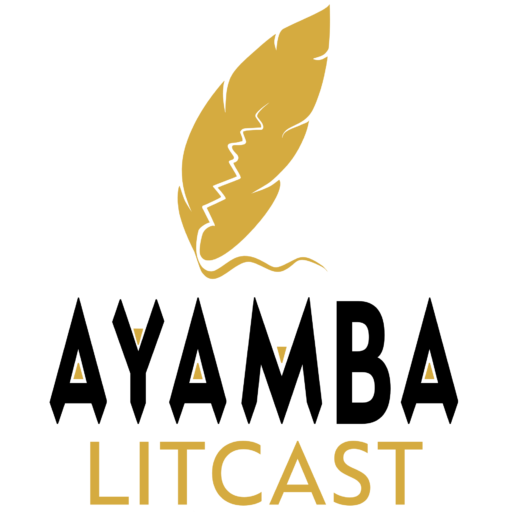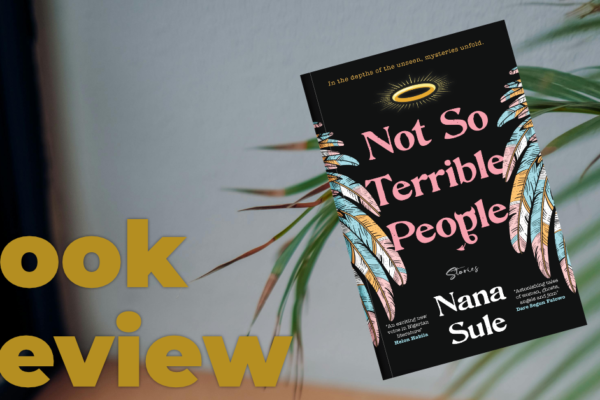This collection is a tapestry of beautiful works of fiction. They satisfy even the pickiest of readers…
Dominion is a beautiful rendition of the world through the eyes of 12 authors spread across continents. It celebrates a rich roll of imaginations, definitions about home and culture. The subject matter is diverse yet held together by the fantastical nature of the writings. The stories run rampant from the sweet and painful to absolute horror. There is the past, the future, the present, and a mix of all three that makes you want to savour the stories piece by piece.
This anthology offers a unique perspective on how stories are influenced by culture from within and from elsewhere. This shows in the difference in style of writers in the continent and those in the diaspora. The worlds created in this collection sometimes run parallel to our own. At other times, they are convoluted beyond what one can imagine.
Two stories stand out for me: Nuzo Unoh’s “The Unclean” and Suyi Davies Okungbowa’s “Sleep, Papa, Sleep”. In the former, a boy named Ebuka comes back from the dead to torment his grieving mother. The consequences are traumatising. In the latter, Maximus, a black market dealer of human parts breaks the second rule of dealership; never dig up the grave of your own kin, leading him down a path of horror as his father returns from the dead. They are similar yet startlingly different. “The Unclean” takes us to the early 1960s where a mother is tackling patriarchy, misogyny and mental health in a rural southern Nigeria. The narrative is simple, and the use of first person makes the emotions more genuine. It is so finely wrought you do not want to skip a page. While Unoh’s approach gives the narration a feel of reading Elechi Amadi, or Achebe, Davies offers a more macabre, more modern perspective. The language is unapologetically Nigerian and the plot so real it is happening across the street.
“Red Bati” by Dilman Dila is a humorous insight into what makes us human. A little pet robot, Red Bati, has an existential crisis that causes tremendous damage to both the human and machine world. This raises the question of whether the soul can be created. “A Maji Maji Chronicle” by Eugene Bacon is a light-hearted tale of magic and time travel, exploring the power of freewill and human choices. “To Say Nothing of Lost Figurines” by Rafeeat Aliyu is a whimsical and straightforward tale of adventure, with heroes conquering villains and escaping to freedom.
Nicole Givens Kurtz and Michael Boatman take horror to the next level. Their stories “Trickin” and “Thresher of Men” delve into a spree of massacre by blood thirsty deities. When an old deity breaks out of his new Halloween costume, violence and blood follow his trail from sundown to sundown. “Trickin” will never let you see Halloween the same way again. “Thresher of Men” sees horror visited upon an idyllic little town where a wronged woman calls upon the goddess of vengeance for justice, revealing the secrets of the town. While “Trickin” shows the indiscriminate ruthlessness of divinity, “Thresher of Men” rides on vengeance.
Another mind-boggling story is “Clanfall”. Odida Nyabundi takes us into the world of cybernetics. He mixes tech and animal instincts so seamlessly you don’t even get a chance to question the ‘how’. In a post-apocalyptic Africa where man is only a legend or a story, this has an African-Space-Vikings kind of vibe; a warrior princess and two bounty hunters, an overthrown kingdom and cunning leaders. The science behind it is sketchy, but the story left me in wonderment considering it ended just when I was getting invested.
Marian Denise Moore pulls on the threads of history in each of her two contributions; “A Mastery of German” and “Emily”, a poem. They both wade through the waters of identity, the Africanness of one not on the continent, and the sanctity of memory. In “A Mastery of German”, the future is not overly technical but filled with the fight for identity, recognition, and the fear of being forgotten. Unlike the other stories in the collection, this has a Robert Cook level of medical horror in which a team of scientists have found a way to harvest and commercialise memory. The glaring ethical conundrum tapers off into a hopeful end. “Emily” too has that spark of hope, of looking to something beyond.
In “A Mastery of German”, Marian Denise writes “…and all of that history was sand. Easy to sweep away and ignore by the next generation.” (pg 124) and “…like black wall street… the black miners at Matawan…it gets wiped away, then two generations later people say we were kings and queens in Africa’. Well sure, but we were City planners, architects… professors here in America.” (Pg 126) There is bitterness interwoven with the desire to leave a mark in the world; a yearning to find one’s self, to look to the past for answers rather than the present.
Ekpeki Oghenechovwe Donald’s “Ife-Iyoku, The Tale of Imadeyunuagbon”, is stunning in its ingenuity. There is a mix of futurism and culture; a clash between progress and tradition. In an Africa ruined by radiation from a third world war, a small group of Ife people survive through mystical means that make no sense to the rational mind. They are enhanced in a parody of evolution, where they grow stronger as their population dwindles. At first, the community seems utopian, bound by their love for togetherness and survival; every member has a role and every role is respected. Slowly, you begin to see the rot that lies within; the extent humanity goes to in order to survive; the atrocities committed in the name of love and divine providence. The main character, Imadeyunuagbon- the last woman- fights every belief. She fights for autonomy in a situation where it could have been so easy to submit, to follow what has always been the norm. She falls and from her ruin, a divine power is born to usher them out of their isolation.
“Convergence in Chorus Architecture” by Dare Segun Folawo is puzzling yet intricate. In a mystical village of war survivors, two orphans become vessels of powers beyond human understanding. Where Gbemisola flies to the stars with all people taken captive by beings across the cosmos, Akanbi goes deep into the earth, into fantastical realms to save them.
“The Satellite Charmer” by Mame Bougouma Diene is set in an Africa that has become the favourite playground of Chinese mining companies. Ibrahima, a boy who is struck by lightning, longs for the vastness of space, for the beam; the same instrument that is being used to ravage his homeland. His longing drives him to the brink of madness. Ibrahima is simple and beautifully flawed, going through the motions from childhood to his marriage, his yearning for the beam is always there, always gnawing at whatever peace he tries to find, and when he finally finds acceptance, it is in a blaze of cosmic energy, leaving behind his earthly shell for the cosmos.
This collection is a tapestry of beautiful works of fiction. They satisfy even the pickiest of readers; from horror to afro futurism, historic to post-apocalyptic, there is love, beauty, humour, pain, rebellion; the young and the old, happy endings and vengeance that evoke passion on every single page.
Book: Dominion: An Anthology of Speculative Fiction from Africa and the African Diaspora
Editors: Zelda Knight and Ekpeki Oghenechovwe Donald
Publishers: Zelda Knight (Limited)
Pages: 374
The reviewer, Habiba Malumfashi has her bio in the members’ profile section.
To get your own copy, follow any of the links below.









Amazing stuff! These are what we need right now as people with black skins!!!
Black don’t crack!
[…] speculative fiction. Her literary works have appeared on Brittle Paper, Kalahari Review, and even Ayamba LitCast. She is an Agricultural Economics student at Ahmadu Bello University, […]